
The Darrell McClain show
Independent media that won't reinforce tribalism. We have one Planet; nobody's leaving, so let’s reason together!! Darrell McClain is a Military veteran with an abnormal interest in politics, economics, religion, philosophy, science, and literature. He's the author of Faith and the Ballot: A Christian's Guide to Voting, Unity, and Witness in Divided Times. Darrell is a certified Counselor. He focuses primarily on relationships, grief, addiction, and PTSD. He was born and raised in Jacksonville, FL, and went to Edward H white High School, where he wrestled under Coach Jermy Smith and The Late Brian Gilbert. He was a team wrestling captain, District champion, and an NHSCA All-American in freestyle Wrestling. He received a wrestling scholarship from Waldorf University in Forest City, Iowa. After a short period, he decided he no longer wanted to cut weight, effectively ending his college wrestling journey. Darrell McClain is an Ordained Pastor under the Universal Life Church and remains in good standing, as well as a Minister with American Marriage Ministries. He's a Believer in The Doctrines of Grace, Also Known as Calvinism. He joined the United States Navy in 2008 and was A Master at Arms (military police officer). He was awarded several medals while on active duty, including an Expeditionary Combat Medal, a Global War on Terror Medal, a National Defense Medal, a Korean Defense Medal, and multiple Navy Achievement Medals. While in the Navy, he also served as the assistant wrestling coach at Robert E. Lee High School. He's a Black Belt in Brazilian Jiu-Jitsu under 6th-degree black belt Gustavo Machado. Darrell Trains At Gustavo Machado Norfolk under the 4th-degree black belt and Former Marine Professor Mark Sausser. He studied psychology at American Military University and criminal justice at ECPI University.
The Darrell McClain show
Progressive Shifts, Voter Rights, and Big Tech: Navigating Political and Legal Landscapes
Cori Bush's primary loss: a turning point for the progressive wing of the Democratic Party? Join us as we navigate the political landscape shaped by Bush's defeat to St. Louis County Prosecutor Wesley Bell. We'll uncover the heavy financial influence of AIPAC and explore its broader implications within the Democratic Party, particularly concerning the Israel-Hamas conflict. Despite this setback, we highlight key victories for Squad members like Alexandria Ocasio-Cortez, Ilhan Omar, Rashida Tlaib, and Summer Lee, dissecting what these results mean for the future of progressive politics in Congress.
Discover the hidden complexities of voter suppression and the profound impact of the Help America Vote Act. We delve into the investigative findings of journalist Greg Pallast, uncovering the stark disparities faced by voters dealing with provisional ballots and the often overlooked process of ballot curing. We'll also contrast the Supreme Court's decisions on gun rights versus voting rights and provide an inside look at the upcoming debates between former President Donald Trump and Vice President Kamala Harris, revealing the high-stakes political maneuvers at play.
Finally, we bring you a groundbreaking antitrust ruling against Google that might just reshape the tech industry. By examining how Google has maintained its monopoly and the potential regulatory shifts for other tech giants, this segment provides valuable insights into the future of big tech. Our episode also pays homage to the intellectual rigor of William F. Buckley's "Firing Line," reflecting on the importance of respectful debate and its enduring impact on public discourse. Tune in for a comprehensive blend of political analysis, historical context, and thoughtful commentary that promises to enlighten and engage.
Welcome to the Darrell McLean Show. I'm your host, darrell McLean. Independent media that will not reinforce tribalism. We have one planet. Nobody is leaving, so let us reason together. Today is 8-8 of 2024. You're listening to episode 222.
Speaker 1:A major loss for the squad happened in the Tuesday primaries as Cori Bush lost her primary. Progressives suffered a major blow in the Tuesday primaries as Cori Bush lost her primary. Progressives suffered a major blow in the Tuesday night's primary as Rep. Cori Bush the Democrat became the second squad member to lose to a challenger this cycle, coming just hours after the Vice President Harris announced the Minnesota Governor, tim Walz, as her running mate in a move seen as a win for the progressive wing of the party. Bush's loss put the internal party frictions over the Israel and Hamas war on full display. Along with Missouri, voters also headed to the polls in Kansas, michigan and Washington state to set up key matchups for November. So here are some takeaways that we can gather from Cori Bush's loss. So Cori Bush's loss raises questions for the squad.
Speaker 1:Tuesday's night biggest showdown was in Missouri's first congressional district, where Bush lost to St Louis County Prosecutor Wesley Bell. Projections showed Bush's defeat makes her the second member of the squad to lose re-election. After Rep Jamal Bowman lost his seat in New York earlier this year, now Bell, who beat longtime incumbent to win his prosecutor's seat back in 2018, dropped his Senate bid to vie for Bush's spot in the House cycle. The race drew in heavy outside spending, amid growing anger over Bush's stance on Israel, as well as other controversies surrounding her, including a federal investigation into how she was using campaign funds. Her defeat will raise further questions about the future of progressive power in Congress and could put the squad in a defensive posture heading into the November and beyond. In particular, it could force progressives to reckon with how to defeat well-funded primary challengers such as Bell.
Speaker 1:With that said, not all news in the election cycle was bad for the squad. Other high-profile members, including the representative Alexandria Ocasio-Cortez, ilhan Omar and Rashida Tlaib, are likely to win their re-election handily. Another progressive rep, summer Lee, won her primary challenge earlier this year, despite being outspent. This also signals another big win for AIPAC. So Bush's primary loss also is the latest victory for the American-Israel Public Affairs Committee, aipac, the pro-Israeli lobby organization that has increasingly flexed its muscle in the primaries over the last couple of years. Aipac super PAC spent a big amount of money to unseat her in the primary, reportedly throwing more than $9 million into the race. The group also spent millions to elevate Westchester County Executive George Latimer in the race for Boeing's seat in New York's 16th congressional district, fueling progressive outrage. The group's opposition to Bush came in response to her vocal criticism of Israel's war against Hamas, the US designated terrorist organization ruling Gaza. She was one of just a few members who opposed a resolution that expressed support for Israel last year, and when the prime minister of Israel, benjamin Netanyahu, addressed a joint session of Congress last month, bush called it sickening that Congress gave him a standing ovation as Bowman was unseated. Bush called APEC a threat to democracy and accused the group of working to silence the voices of progressives and justice.
Speaker 1:Bush's primary is set. The is is just the latest instance of this war looming large over the Democratic Party in a race as it races up and down the ballot this cycle. Before he exited the White House race, president Biden faced substantial backlash over the administration's handling of the conflict in Israel and Palestine within the war with Israel and Hamas. So a key Senate race is now solidified. This battle between Bush and Bell, or whatever, solidified that Michigan's race in November, one of the key contests will help determine control of the upper chamber.
Speaker 1:Three-term rep Elisa Slotkin won the Democratic primary in her bid to replace retiring Debbie Stiboneau, while Trump backed former Rep Mike Rogers what his Republican primary projections showed. Rogers was recruited by the Senate GOP campaign arm to run for the open seat, with the party seeing it as a key pickup opportunity. Pick up opportunity. Republicans are giddy over what some say is the party's best map in years to win the senate, which democrats currently hold by a razor thin majority. So slot 10 is running with uh steinbo's endorsement, and forecasts from every place, from the hill to decision desk hq show her with a 60 60% chance of beating Rogers in November.
Speaker 1:The Great Lakes state is also a crucial battleground in the presidential race. After Biden saw significant protest votes from his own party in Michigan primarily this year, the nonpartisan Cook political report shifted the Senate race to a toss up. Now, with just more than 90 days to go until election day, it is unclear how a newly formed Harris-Waltz ticket will impact the fight for the upper chamber seat, though many Democrats argue the new vice presidential contender's mid-rested roots will help the party in a traditional blue-wall state. So a pro-impeachment Republican battles for survival On the 10th House Republican, one of the 10 House Republicans who voted to crowded nonpartisan primary alongside Trump-backed Republican Jared Sessler, teeing up to be a competitive general contest.
Speaker 1:However, there were still many ballots left to count as the publication time at Newhouse was running not too far ahead of the GOP candidate, tiffany Smiley, who was in third place. Newhouse defeated Sessler and Trump endorsed Lauren Culp in the primary two years ago and went on to win reelection to the red central Washington seat in the midterms, but his impeachment vote has made him a continued political target backing Sessler this cycle. A continued political target backing Sessler this cycle. Trump called Newhouse a weak and pathetic rhino who voted to for no reason impeach me. Newhouse is one of just two impeachment GOP lawmakers left in the lower chamber and his fall contest will be the test for survival against a fury of Republicans who turned against him after January 6th.
Speaker 1:Election conspiracies might have cost Kansas officials his office. The sheriff of Kansas' most popular county appeared poised to lose his re-election bid. On Tuesday, amid frustrations over a controversial investigation into alleged election fraud, johnson's County Sheriff Calvin Hadin kick-started an investigation after the 2020 election, despite claims from local officials that there was no widespread voter fraud, as reported by the Associated Press, hayden paused the investigation last month after producing no criminal charges and stoking suspicion towards state and local election systems. The Kansas City Star reported On Tuesday Hayden appeared headed for defeat in his GOP primary to Republican Judge Bedford, a former US Navy SEAL who served as Hayden's undersheriff from 2017 through 2021. He'll face a Democrat, brian Robinson, the police chief of Priory Village, in the fall. The incumbent's likely defeat comes after he ran unopposed four years earlier and signals divisions among Republicans in the state surrounding claims of election fraud versus those who say the election was legitimately won and there was no fraud enough to turn the election results. Trump has refused to commit to accepting the 2024 results, has refused to commit to accepting the 2024 results and he has continued to tout his debunked claims that the 2020 election was stolen from him, while some in the party have pressed fellow Republicans to move on from the last cycle Texas placebo ballot plot.
Speaker 1:Last week I documented how, in Georgia, both Governor and former Secretary of State Brian Kemp and current Secretary of State Brad Ratten, bradsen Perger, have been actively purging millions of Georgians, particularly black voters, from voter rolls for years. How Kemp purged over 100,000 Georgia voters and that beat Stacey Abrams by about 50,000. A similar scheme has been underway in Ohio ever since Republicans took over that state and also operates in most other red states that have large blue cities. The purges that started in a big way under Republicans in Ohio gained both notoriety and lawsuits, one going all the way to the Supreme Court. They did, however, produce a significant blowback. People got pissed off when they showed up to vote and were told that they'd been removed from the voting rolls by the Republican administration of their state.
Speaker 1:So Republicans in Texas have come up with a new twist that's designed to avoid directly confronting and angering voters. You could call it passive-aggressive vote suppression. Instead of purging people off the rolls entirely, they're putting voters they consider suspicious on what they call a suspense list. As of last week, according to the Dallas Morning News quote, nearly 12 percent of Texas's roughly 18 million voters are on the suspense list, end quote. If you're running a state and want to hang on to power, even if your policies are not popular and you're so incompetent, you can't even keep the power on. The easiest way to stay in office, to win elections, is to pre-rig them by making sure some people's ballots are simply never counted. The Texas GOP has turned this into an art form in a state where elections at the statewide level are often won by a single point or two, muting the votes of 12% of the state's voters can give you a real edge.
Speaker 2:Here's how it works. Being on the suspense list means that when you show up to vote, you'll be given a provisional ballot. Ever since five Republicans on the Supreme Court legalized this practice of bouncing people off voting rolls because they don't return a postcard, it's called caging and was illegal in the US for decades. In the 2018 case of Husted v Randolph, red states have been aggressively sending out postcards to people in heavily Democratic areas. If those postcards aren't filled out and returned promptly, the voters are either purged from the rolls Ohio, georgia and most other red states or, in Texas, put on the suspense list and given a provisional ballot when the citizen shows up to vote. The other way the Supreme Court has authorized states to strip people off their voting rolls is, if they skip one or two elections, to simply remove them from the voting rolls, also forcing them into provisional ballots. What's a provisional ballot? Former BBC and Guardian reporter, greg Pallast calls them placebo ballots, and with good reason. You mark the ballot with your voting choices, hand it in and walk away feeling like you actually voted. You tell exit pollsters and your friends that you voted. You believe that you voted and that your vote will be counted, but because it's a provisional ballot, it goes into a separate box and is not counted on Election Day. Many provisional ballots are never counted, in fact, because for a provisional ballot to be counted in most states, including Texas, the voter must, within six days of the election, present themselves at the Secretary of State's office with ID and proof of citizenship and residence. If you don't take the day off work to do this, your ballot is not counted and often people don't even realize what's happened to their vote. Provisional placebo ballots came about in 2002 as a result of the Help America Vote Act that was signed into law that year by George W Bush. That legislation, written in large part by former Representative Bob Nay of Ohio, a Republican, contains provision requiring people who show up to vote, even if they've been purged from the voting lists, to be given something new called a provisional ballot. The main reason we did that, the former congressman told me, was because, particularly across the deep South, people were simply being turned away at the polls. In most cases it was because they were black, but in many cases it was also being done in districts where the opposition party controlled most of the election apparatus, typically Republicans turning away people in Democratic districts. We wanted to make sure he added that every eligible voter had both a chance to vote and some level of certainty that his or her vote would be countered after they went to all the trouble of voting. End quote At Apartmentscom, we know that when you lease out your place, you want someone who will love and care for it, just like you do From the tile you installed yourself to the back deck you built one summer to the two years you spent getting those building permits approved.
Speaker 2:As a landlord, you're leasing out more than a space. You're leasing out your space. So list on the site with the most renters so you can find the best renters for your place, whether it's a condo, a duplex or a single-family home. Don't limit yourself to who gets to see it. Cast your net to millions. Apartmentscom's built-in tools cover the leasing process from end to end, From applicant screenings to generating lease agreements to online rent collection. Manage every part of leasing 100% online. Find the perfect person for your place. Apartmentscom, the place to list a place.
Speaker 4:If you're a new parent, a bad day means you either ran out of coffee, diapers, patience or all of the above. Stocking up on cold brew and deep breaths are all you. Hello Bello's got your baby's butt covered, because Hello Bello believes all families deserve premium, affordable baby products. With their ultra-convenient diaper bundle subscription service that includes seven packs of diapers and four packs of plant-based wipes, you'll never run out of supplies. Better yet, they're delivered to your door. Set, change and cancel your delivery schedule whenever you want. If you're a parent, your to-do list is longer than all your baby's wake windows combined. Let Hello Bello take care of diaper runs until you're done potty training. It was named Best Diaper Subscription by New York Magazine and winner of the 2022 Good Housekeeping Parenting Award for a reason. Go to HelloBellocom slash Wondery to get 30% off your first customized bundle and a full-size freebie product of your choice. That's HelloBellocom slash Wondery. To start bundling with 30% off your first order. Don't forget, that's HelloBellocom slash Wondery.
Speaker 4:The parable about the road to hell being paved with good intentions is worthy of citing here. The Hava law was passed on a bipartisan basis. After the hanging Chad disaster in Florida in the 2000 election was the main excuse given by the media for that state's substantial redshift, but the giant loophole it created for GOP vote suppressors was based on the simple reality that provisional ballots are often not counted. Rules vary from state to state, but usually if voters are given a provisional ballot, they must then, within a few days of the election, present themselves in person at a state or county office to prove that they are who they say they are and that they were legally registered to vote and were purged incorrectly. The Hava law requires that voters getting provisional ballots be told that they can cure their ballots, but in actual practice Republican-controlled states, this is almost never the case, although, even when, it is the percentage of people who'd be willing to take time off work or able to take time off work to jump through all these hoops is tiny.
Speaker 4:Independent investigative reporter Greg Pallast, whose work is published by the BBC, the Guardian, rolling Stone and Salon, found this to be very much the case, and worse when he accompanied Dr Martin Luther King Jr's 92-year-old cousin, christine Jordan, to the polls in Georgia and poll workers repeatedly refused to give her even a provisional ballot until Pallast intervened.
Speaker 4:Ballot until Pallast intervened. After voting for half a century in the same place, she'd been purged from the roles by Secretary of State and gubernatorial candidate Brian Kemp in the run-up to his contest with Stacey Abrams. Eventually, after multiple tries, with Pallast threatening lawsuits making a scene on camera at the polling place, jordan got a provisional ballot, although it almost certainly was never counted In Texas to have the provisional ballot of a person on the suspense list counted. The state's website explains quote In order to have the provisional ballot counted, the voter will be required to visit the voter registrar's office within six calendar days of the date of the election to either present one of the acceptable forms of photo ID or submit one of the temporary affidavits in the presence of the county voter registrar, or submit the required paperwork and sign the required statement to qualify for a permanent disability exemption in the presence of the county voter registrar in order for the provisional ballot to count.
Speaker 2:End quote Fully 12% of Texas' voters are now on the suspense list, although, as far as I can tell with a pretty thorough web search, the state doesn't disclose who they are, where they live, how they previously voted or even how they got on the list. In America, five Republicans on the Supreme Court have ruled repeatedly that you have a right to own a gun and carry it pretty much wherever you want. If a state government wants to take your gun away because the Supreme Court has defined gun ownership as a right rather than a privilege, they must go to court and prove their case before a judge. On the other hand, the Republicans on the Supreme Court have repeatedly ruled none of us have a right to vote, Even though the 1993 National Voter Registration Act, sometimes called the Motor Voter Act, explicitly says repeatedly that voting is a right.
Speaker 2:In America, Republicans on the Supreme Court had blocked our access to that right In 2001,. In the case where five Republicans on the court stopped the Florida recount and handed the election to its loser, George W Bush, Chief Justice Rehnquist was explicit writing for the majority. Quote the individual citizen has no federal constitutional right to vote for electors for the President of the United States. They must go to court to take away your gun. But republicans can and routinely do, take away our votes without even informing us, and when they make your date, you take a day off work and drive 100 miles to the secretary of state's office to prove that you're still who you'd already proved you were when you first registered, before you'd been bounced off the hunt of the suspense list.
Speaker 2:That's just wrong, and America is the only country in the developed world, other than Hungary, where this is the case. The rest of the democratic world looks at us like we're some kind of freaks. Poor white men 1790s, Then African Americans and other minorities 1860s and finally women 1920s, Fought, went to jail and even died for the right to vote for more than two centuries, and yet still there is no universal right for American citizens to vote. In her Philadelphia speech yesterday, Vice President Harris referenced this bizarre situation, saying that when she's president, the first bill she wants to sign is the John Lewis Voting Rights Act, which will make the right to vote explicit in a way Republicans on the Supreme Court can't ignore.
Speaker 1:It's about damn time Now. Former President Trump, during a press conference at the Mar-a-Lago Resort Thursday, has agreed to three separate debates on three different networks against his new opponent, vice President Kamala Harris. Trump scheduled the press conference as his campaign seeks to make Harris access to the media a campaign issue. Trump had previously said he would not take part in the scheduled debate on ABC. That was initially set on September 20th between him and President Biden. But ABC, in a statement during Trump's press conference, said both he and Harris had agreed to a debate on September 10th. The former president also said on Thursday that he proposed debates with Fox News on September the 4th and NBC on September the 25th. We have spoken to the heads of the network. It has all been confirmed, other than some very mighty details, including whether the Harris campaign agrees to any of those dates. Trump said I look forward to the debates because I think we have to set the record straight. The former president said Now for her own sake. Harris responded to Trump's comments in a post on X welcoming the September 10th debate. I hear that Donald Trump has finally committed to debating me on September 10th, she wrote. I look forward to it. She did not mention the other two dates. Ongoing litigation against ABC's news is George Stephanopoulos is a reason he would not attend an ABC event, though he accepted the networks as a host after filing the lawsuit. Harris teams has called out Trump for backing out of the ABC News debate and said the vice president intends to use that time to appear on the network regardless or not, if Trump decides to attend. Now Trump in recent weeks increasingly hedged about debating Harris, initially saying he would absolutely square off with the vice president, but later saying he would think of reasons not to do so, of reasons not to do so.
Speaker 1:So let's go to the Supreme Court's, and a repeating theme, it seems, is the Justice Thomas issue. So Justice Clarence Thomas has come up again for having failed to reveal more private flights, and this is according to one of the senators. So Senator Ron Whedon sent a letter to the wealthy conservative donor Harlan Crowe's lawyer after records showed undisclosed flights between Hawaii and New Zealand with the Supreme Court justice back in 2010. So Justice Clarence Thomas failed to publicly disclose additional private travel provided by the wealthy conservative donor Harlan Crowe, a top Democratic senator, said in a letter on Monday. Cops and border protection records revealed that Justice Thomas and his wife, virginia Thomas, took a round trip between Hawaii and New Zealand in November of 2010 on Mr Crowe's private jet. According to the letter, senator Ron Wyden, the Democrat from Oregon, writing to Mr Crowe's lawyer, demanded that he supply more information about the financial relationship between the two men. The letter is part of an inquiry that Mr Wyden, the chairman of the Senate Finance Committee, has opened up to Mr Crow and the justices. As it comes as the top Democrats have urged major changes to the Supreme Court, including an enforceable code of conduct, mr Wyden said that the latest revelation had only increased his misgivings about the relationship between the justices and Mr Crow, a real estate magnate. I am deeply concerned that Mr Crow may have been shouting a public official with extravagant gifts than writing off those gifts to lower his tax bill. Wyden wrote Justice Thomas did not immediately respond to requests for comment.
Speaker 1:A spokesman for Crow, michael Zona, said that his lawyers had already addressed Wyden's inquiries, which have no legal basis and are only intended to harass a private citizen. It accused Weidman of a politically motivated effort to undermine the Supreme Court. The statement added that Crowe has always followed applicable law. We consider this matter settled and refer Senator Weidman to our previous correspondence. The statement read Justice Thomas had previously said he did not believe he needed to disclose gifts of a personal hospitality from friends who did not have cases before the Supreme Court. By law, justices are required to fill out financial disclosure forms each year, including, among other things, outside incomes gifts, but justice thomas's forms for 2010 did not list any flights from crow's jets. Weidman singled out the discrepancy in his letter, noting that the justices had revived past court records to reveal travel provided by mr crow. To date, justice thomas has never disclosed this private travel on any financial disclosures forms, even though the Justice Thomas amended disclosure reflects other international travel on Crow's private jetty row. In 2023, propublica noted that the justices had sailed abroad Mr Crow's yacht, the Michelleosa, in new zealand. About a decade ago, justice thomas, in a show of gratitude, gave a crew member a signed copy of his memoir. It was not immediately clear whether the 2020 fight disclosed by mr wyden was a part of the same trip or how justice thomas and and his wife traveled to and from Hawaii.
Speaker 1:So look, this is just going to keep coming up. There had been talk a long time ago about Justice Thomas somewhat floating at a meeting once that he was going to retire from the Supreme Court because he did not make enough money and that was supposedly this was speculation was when conservatives started to do things to make sure that Justice Thomas stayed on the court as a conservative justice. Now this is just something that I think is part and parcel of what it is to be in the power halls in the United States of America. It is, unfortunately, it seems like everything and everybody is for sale, and that does not exclude the Supreme Court. It seems like a lot of times the judges are bought also.
Speaker 1:Now, in a speech in Austin Texas, the president current President Biden is warning of an extreme agenda. Biden has actually calls for Supreme Court overhaul. In a speech in Austin Texas, the president outlined a proposal that included term limits and an enforceable ethics code for justices, but it does face long odds in a divided Congress. So he was warning that the country's courts were being weaponized as a part of an extreme and unchecked conservative agenda, and he said that he would push for legislation that would bring major changes to the Supreme Court. Biden detailed his plans in a speech at the Lyndon Baines Johnson Presidential Library and Museum in Austin Texas, his first public engagement since announcing his decision to end his presidential campaign became a venue for Biden to begin talking about a 51-year legislative legacy while outlining an election year intention to try to stop. Many parts of his party's feel is the Supreme Court's ideological drift to conservatism versus judicial rulings. The proposal will require congressional approval and has little hope of gaining traction in a Republican-controlled House and a divided Senate. In a social media post, for example, speaker Johnson called the plan dead on arrival in the House. Biden later said on stage that Johnson's thinking was dead on arrival.
Speaker 1:Earlier this month, the court issued a 6-3 ruling that grants broad immunity to presidents from prosecution for actions they take while in office. Biden called for a constitutional amendment that would limit such immunity. For all practical purposes, the court decision almost certainly means that the president can violate the oath, flout our laws and face no consequences. Biden said Folks, just imagine what presidents could be trampling civil rights and liberties giving such immunity. Biden's warning that extremism is undermining the public confidence of the court decision, said conservatives' plans for sweeping policy changes and former President J Trump Donald J Trump wins a second term, known as President 2025, will continue to push the courts to the right. They serious man. Biden said they're planning another onslaught attacking civil rights in America.
Speaker 1:His remarks were met with support from others in his party, including Vice President Kamala Harris, the Democratic nominee, who said she was a partner in the effort who would take up Biden's proposal in her campaign. These popular reforms would help restore the confidence in the courts, to drive democracy and ensure no one is above the law, she said in a statement by her campaign. The conservative activist Leonardo A Leo, which is known for making the appointments to conservative judges a core of the Republican Party's agenda, assailed Biden's effort as a partisan. It's about Democrats assuring the court they don't agree with he effort as a partisan. It's about Democrats destroying the court they don't agree with. He said in a statement.
Speaker 1:The president and his advisors argue that Americans are broadly concerned about the inner workings of the court that has swung to the right in the years since Mr Biden took office. Recent polls show the Supreme Court's approval rating is at a historic low and a majority oficans believe the court's decisions are driven by ideology. Over the past two years, justice clarence thomas has become embroiled in ethical scandals for failing to disclose gifts and luxury trips bestowed by the billionaire benefactor. Justice samuel alito jr has faced scrutiny about uh flags associated with january 6th and the 2021 Capitol attack being flew outside of his homes. In his remarks, biden said the system of a lifetime appointment to the Supreme Court gave the president's undue influences for decades, and he has endorsed the 18-year term limits for the justices. He said he supported a code of conduct that required justices to disclose gifts, refrain from political activity and recuse themselves from cases in which they or their spouses have financial or other conflicts, calling them common sense reforms that the vast majority of Americans support. So let's talk about Google as our last story for the day. Okay, and I'm not going to get through this whole thing, but I'm just going to tell you Google is a monopoly and a judge rules that it is monopolistic.
Speaker 1:In a landmark antitrust case, the ruling on Google search dominance was the first antitrust decision of the modern internet era in a case against a technology giant. Google acted illegally to maintain a monopoly in online search that the federal judge ruled, and the decision that strikes at the power of tech giants in the modern internet era may fundamentally alter the way that we do business. So the judge, mp Mehta of the US District Court for the District of Columbia, said in a 277-page ruling that Google had abused a monopoly over the search business. The Justice Department and the states had sued Google, accusing it of illegally cementing its dominance in a part by paying other companies like Apple, samsung, billions of dollars a year to have Google automatically handle search queries on their smartphones and web browsers. Google is a monopolist and it has acted as it was so and is one to maintain its monopoly, the judge said in his ruling. The ruling is a harsh verdict on the rise of the giant technology companies that have used their roots in the internet to influence the way we shop, consume information and search online, and it indicates the potential limit of big tech's power. It is likely to influence other government antitrust lawsuits against Google, apple, amazon and Meta, the owner of Facebook, instagram and WhatsApp.
Speaker 1:The last significant antitrust ruling against a tech company targeted Microsoft more than two decades ago. This is the most important antitrust case of the century decades ago. This is the most important antitrust case of the century, and it's the first in a big slate of cases to come down against big tech. Now, that came from a professor at Vanderbilt University by the name of Rebecca Haw-Allensworth, and so the decision is a major blow to Google, of course, which is built on a search engine and has become so closely associated with the online search that his name has become a verb. The ruling could have major ramifications for Google's success, especially as the company spends heavily to compete in the race over artificial intelligence. Google faces another federal antitrust case over ad technology that is actually scheduled to go to trial next month, so that is going to be a big deal.
Speaker 1:Hey, we are a mixed economy, most people would say without a question. This is a capitalist country and I am all for competition and I am all for competition. Now, of course, I do like Google for the show, and I also use Google when I'm doing academic research, because Google has a good tool called Google Scholar, and it's always Google. Scholar has always been good to me, but I'm very interested to see what happens, very interested. I'm hoping to open to other competition. We're going to end the show by going to the Blast from the Intellectual Past and I'll see you on the next episode.
Speaker 7:Firing Line with William F Buckley Jr. Isn't it true that certain jokes, at least what were considered jokes 10, 20 years ago, are now unsayable as a result of certain tensions that exist, For instance, certain racial jokes? You couldn't have a minstrel show, now could you in Hollywood. Do you regret this?
Speaker 8:Well, I liked minstrel shows because I was brought up in that era, but I think it's wrong today. I think the colored people have such a struggle today that I don't think there should be any jokes connected with them.
Speaker 7:Well, but then shouldn't it also be said that there oughtn't to have been Irish jokes back when they were having a terrible time and dying like flies in Ireland, there shouldn't have been Jewish jokes when they were fighting their way out of the ghettos, and so on and so forth.
Speaker 8:I still resent Jewish jokes publicly, and Irish jokes and Catholic jokes and all kinds of jokes. Did you ever tell Jewish jokes yourself? I never said a Jewish word on the stage in 50 years. I didn't say a Jewish word. I said a Jewish joke. No, I might tell you one when the show's over, but I never tell them publicly. I don't regard myself as a Jew when I'm publicly performing. I'm an actor, maybe a bad one, but I'm an actor.
Speaker 7:In other words, out of a sense of deference to people who would not consider them funny, you wouldn't say them to a general audience.
Speaker 8:You would only say to somebody who's who I liked and knew, who tested and knew and would understand it. I resent Myron Cohn. I know that, with that long farrago of Jewish jokes, I think the Jews should have a dignity now, the same as the Catholics and the Protestants. I must tell you I'm not a good judge.
Speaker 7:I don't want to get out of this, because, isn't it?
Speaker 8:a sense, I knew about you. You were going to make this serious. We were having fun before. Why don't you keep it that way? Well, tell me if it begins to hurt? No, it never hurts. I'm proud of being a jew, particularly week before last. How do you feel, judge, you have no animosity towards we people, do you?
Speaker 7:no, isn't he a charmer? A lot of modern poetry one doesn't really follow in any narrative sense, does one well?
Speaker 5:they probably could follow my hand gestures and my eye-face gestures. You were very responsive. That was nice yeah.
Speaker 7:No, I enjoyed it. I think it's very beautiful. Now are you suggesting that because you took that while under LSD you were able to do it?
Speaker 5:Well, I think it could be. It's a natural thing. I cited Blake and Wordsworth as having that natural vision. I think the LSD thing is not an unnatural vision as evidenced by the particular details. Like sheep speckled the mountainside revolving their jaws at the eye, they recognize that there are human things that everybody has seen in nature. I think the LSD clarified my mind and left it open to get that sense of giant, vast consciousness. Specifically, the one thing I noticed which I was trying to describe was that the ocean of heaven, the atmosphere, is like an ocean and at the bottom of that ocean of air there are all sorts of rivulets, winds, breezes, and those rivulets, like at the bottom of a fish tank, move all the trees, move the people around, the hair, the beards, the grass, the lambs, wool, rainbead in the grass, so that it's like one system, like one giant being breathing, one giant breathing being that we all are part of and which we always forget that we are together, the God of the universe.
Speaker 7:You say together, but Yvonne sometimes is saying that it's not really together. It's you as an individual who is God, or anyone who has discovered his consciousness?
Speaker 5:Going back to that first question you asked like, are the hippies, the world, in the order? I think the primary hippie and beatnik, originally back in 1956, cadillac Burroughs perception, was a recognition of that unity of being and a recognition of that great consciousness which we all were identical with. See, and that's what I think is the meaning of that flower power, you know like make love, not war. Ultimately, it's like it's grounded in an understanding of the nature of the universe and that you can't fight us, we can't fight us. That force, finally, is, you know like, at least at this level of civilization, is just like a mess and is not going to resolve the problem. And the problem is seeing our unity, particularly black and white, particularly square and hippie, particularly police and student, particularly birchite and individualists.
Speaker 9:One thing I don't think about the vote is that it's a pure expression of the people at any given time. Anyway, the vote is much too crude an instrument to measure what real feelings are in the country. Moreover, politics is extraordinarily complex and dialectical and contradictory. For example, nixon could get in on a pro-war policy and be the man to make the peace precisely because he's a Republican. And that's the one theory of mine. It's the Democrats who start the wars and the Republicans who finish them, mainly because the Democrats always have to prove that they're not communists, so they always have to be very militant against the communists. The Republicans don't have to prove that so they can make peace with the communists.
Speaker 9:If you look at the last few wars, that's how they've gone. Do you regret that? No, I think it's part of the pleasurable comedy of politics. I don't take politicians seriously except as adventurers. I think they're splendid fellows as adventurers and I admire many of their qualities. I admire their ability to move from idea to idea and bed to bed that they're exceptional idea, in bed to bed that that they're exceptional.
Speaker 7:Well, the uh you say. You say that the uh democrats are always uh feeling the necessity to prove that they're not uh communist. But are you glad that they're not uh communists?
Speaker 9:am I glad that I'm coming? Yeah, I listen, I. I detest communism. I detest it much more than you do, because I know much more about it. I mean, I've read uh, because I read marks, you know studied it. I spent three months studying him. I love Marx. You see, I just detest communism because it betrayed Marx. This is the way you might detest some awful Christian sect that completely betrayed Christ, you know.
Speaker 7:Yeah, I certainly understand what you're talking about, but it is of course true that the typical communist who lives, let's say, on the other side of the Iron Curtain would be much less frightened by a Naylor administration than, say, by a Buckley administration. No, I think they can comprehend as far as they are concerned, I think they will probably consider the people I support as more relevant to the anti-communist people you support. The last time you were heard of on the political ramparts was on a committee on being friends for Castro. A fair play for Castro.
Speaker 9:I'm still in love for Castro. I think he's a remarkable man. Let me just say that I think that the communists would probably well I can't pretend they'd ever be least but happy with you. They would feel a certain security, which is they would feel they have some idea of what you might be about to do next. They couldn't ever feel that with me, and I love the way we're treating each other as world leaders.
Speaker 7:You see, I'm not the only narcissist in the house now you are telling me to respect your metaphors, which I'm just doing I'm glad that we're beginning to find some conjunction of uh discourse, that uh, I'm beginning to uh.
Speaker 9:Well, let's go with that, but the the no offense, I see, I'd like to keep a certain, certain freedom, a certain liberty to look at the lineaments of major figures. For instance, just until the strike started in France as of a week ago, I was saying I thought the two greatest political figures in the world today were Fidel Castro and Charles de Gaulle. Now I think I may still be able to say that a week from now, because so far I think de Gaulle has been acting sort of. I think he's the world's greatest living conservative. You know, I think he's a remarkable man. I'm tremendously fond of him. Yeah, I have great respect for him. I have great respect for Castro.
Speaker 9:The point is that men's, you know this is the way you want to have a great respect for saints and generals, for criminals and cops. You know such a thing as a great cop is such a thing as a great criminal. And the way I work. It's very hard to explain this to people, but I don't think in categories. I think rather I try to think this way that the world is better off if every so-called type in the world is better. There's a better world when the cops get better and the criminals get better. It's a poorer world when the cops are dull and the criminals are dull.
Speaker 7:In one of his essays, where the cops are dull and the criminals are dull. In one of his essays, mr Chomsky writes by accepting the presumption of legitimacy of debate on certain issues such as this one, one has already lost one's humanity. I should like to begin by asking him why, under the circumstances, if by being here he stands to lose his humanity, he consented to appear in the first place Because, first of all, I didn't quite put it in those terms.
Speaker 6:I don't think I think that what I yeah, but I think that there are. I said that there are certain issues, for example Auschwitz, such that by consenting to discuss them one degrades oneself and to some degree loses one's humanity, and I think that's true. Nevertheless, I can easily imagine circumstances in which I would have been glad to debate Auschwitz, for example, if there were some chance that by debating Auschwitz it might have been possible to eliminate it or to at least mitigate the horror of what was going on. And I think I feel the same way about Vietnam. And I really think that there is no, fundamentally there is no argument anymore at an intellectual level, in my opinion, but I think it's very important to discuss it nevertheless, at what level is there an argument?
Speaker 6:Well, there is a policy which I think is a destructive and devastating policy. It's continuing policy which I think is a destructive and devastating policy. It's continuing and the continuation of the policy is, to some extent, based on the fact of public apathy or public acceptance. Hence, there still is the necessity to convince people that they should act strongly to put an end to this policy.
Speaker 7:At what point was there an intellectual argument? At which point did an intellectual argument in favor of our intervening in Vietnam cease to?
Speaker 6:exist. Well, as I say there, I think that there may have been a time when there was something to debate. For example, I think that in the middle 50s, though I was opposed to the policy and I think that it was right to be opposed to it nevertheless I think it was a debatable issue. In a sense in which it is no longer a debatable issue. Why is that? Because, at the moment, I think it's really an issue of the survival of the existence of Vietnam as an entity, as a social and cultural entity. I think that's what's at stake. But even that could be intellectually argued, couldn't it? Well, in the same sense in which Auschwitz could be intellectually argued. I mean in a different sense, no, I think in the same sense.
Speaker 7:In fact, don't forget, there were people who argued in favor of Auschwitz. No, no, I haven't done that at all. I haven't had any such on this program, though I intend to. But it seems to me that, even if what you said were correct, there could be a perfectly legitimate argument over, for instance, the continuation of the state of Anguilla or the continuation of the state of Biafra or the continuation of the state of Goa. But I didn't talk about the existence of the state. I talked about the existence of the society as a social and cultural entity. I think that's what's at stake. Okay, well, if it's at stake, mightn't there be two points of view about how to help it evolve into its natural form, right?
Speaker 6:Oh, there are many different points of view, I think they're very legitimate. They're very legitimate issues that can be argued as to how the United States ought to most efficaciously put an end to its destructive actions in Vietnam. There are many different alternatives that might be thought of.
Speaker 7:Yes, but one way, of course, to put an end to America's necessary intervention is to conclude the war successfully.
Speaker 6:That's a way, yeah, one possible way is by destroying Vietnam, which I think is probably the most likely option.
Speaker 10:You disagreed very strongly with Dick Gregory who had indicated that the militant stance and symbolism and rhetoric functionally could actually displace violence. If you see what I mean, perhaps could you accept that as a phenomena of a positive good that the Panthers have contributed.
Speaker 7:Yes, I could Unfortunately as much as this said of the Ku Klux Klan, but it is true. Dick Bradley gave a concrete example you may not remember about a black woman who felt intimidated. This was about two or three years ago and she called the Black Panther headquarters there and they sent someone to look out for her and he was armed to look out for her and he was armed on the basis of the assurance that she got. From his presence she did calm down and recovered her stability, and there's no question that people can't perform that kind of a function armed in that kind of a way, and I have no doubt that here and there the Black Panthers did.
Speaker 3:Well, I would like to say this, and I'm sorry if I interrupt, but when people equate the Black Panther Party with such people as the Klu Klux Klan, the White Citizens Council, I get sort of upset. I agree that I would like to see a world, and we agree on more questions than we probably have time to realize now. But the point that dialogue, just the energy of dialogue, dialectical struggle or struggle just through the word, uh, this year, dot, dot, dot, dot, dot, dot, dot, dot, dot, dot, dot, dot, dot, dot, dot, dot, dot, dot, dot, dot, dot, dot, dot, dot, dot, dot, dot, dot, dot, dot, dot, dot, dot, dot, dot, dot, dot, dot, dot, dot, dot, dot, dot, dot, dot, dot, dot, dot, dot, dot, dot, dot, dot, dot, dot, dot, dot, dot, dot, dot, dot, dot, dot, dot, dot, dot, dot, dot, dot, dot, dot, dot, dot, dot, dot, dot, dot, dot, dot, dot, dot, dot, dot, dot, dot, dot, dot, dot, dot, dot, dot, dot, dot, dot, dot, dot, dot, dot, dot, dot, dot, dot, dot, dot, dot, dot, dot, dot, dot, dot, dot, dot, dot, dot, dot, dot, dot, dot, dot, dot, dot, dot dot.
Speaker 3:But as long as there's a special economic interest and one has to support an authority that he has to support. Then he creates a rhetoric in order to sell that to a group, to an army, to a hedge fund. Then I think that this kind of dialogue will be inflammatory and cause much violence and so forth. And I will even point out the history of the Black Panther Party. I think the rhetoric ran amok with the leadership, the influence of Eldridge Cleaver and it caused many murders. It laid the foundation so that even the black community could say you know those bad guys out there. You see, they only want violence and robberies and so forth. This kind of rhetoric, I think, can promote physical conflict. That dialogue itself carries no sort of virtue, unless it's pointed into a direction in order to resolve a problem.
Speaker 1:You see of a problem you see. So look, that was the just a lot of clips from the show that.
Speaker 1:I may be biased here, but I don't. I have not seen one as good as that since I have saw that one that was the father of conservatism. He predated Ronald Reagan, actually, and his name was William F Buckley. And what William F Buckley used to do was he would invite people on who he agreed with and or disagreed with. He would let them speak in long form and he would vigorously debate them on the things that they said.
Speaker 1:A lot of young people that went on the show that went on to be great in public policy went on to write a lot of polemics, write a lot of articles, write a lot of articles. People from Gore Vidal to Christopher Hitchens, huey P Newton, who was the leader of the Black Panther Party, james Baldwin, norman Mailer, etc. The list goes on and on. He had the great Black conservatives Thomas Sowell, thomas Sowell the show firing line. In the way that William F Buckley presented and did the show, as a young person growing up who got to catch the tail end of it and was able to somehow see clips online and now they're available, he was the best that did it and I wish that we could get back to that type of debate. Thank you for tuning in and I will see you on the next episode.
Podcasts we love
Check out these other fine podcasts recommended by us, not an algorithm.

The LUNSB Show with T-Bone and ChickBrew
Tony Knuckles
Over opinionated with Josh Scott
Josh scott
Don't Be Mad: A Podcast with Jamie and Abby!
Jamie Kilstein
The Back Row with Jamie Kilstein
Jamie Kilstein
Your Calvinist Podcast with Keith Foskey
Keith Foskey
BJJ Mental Models
Steve Kwan
Renewing Your Mind
Ligonier Ministries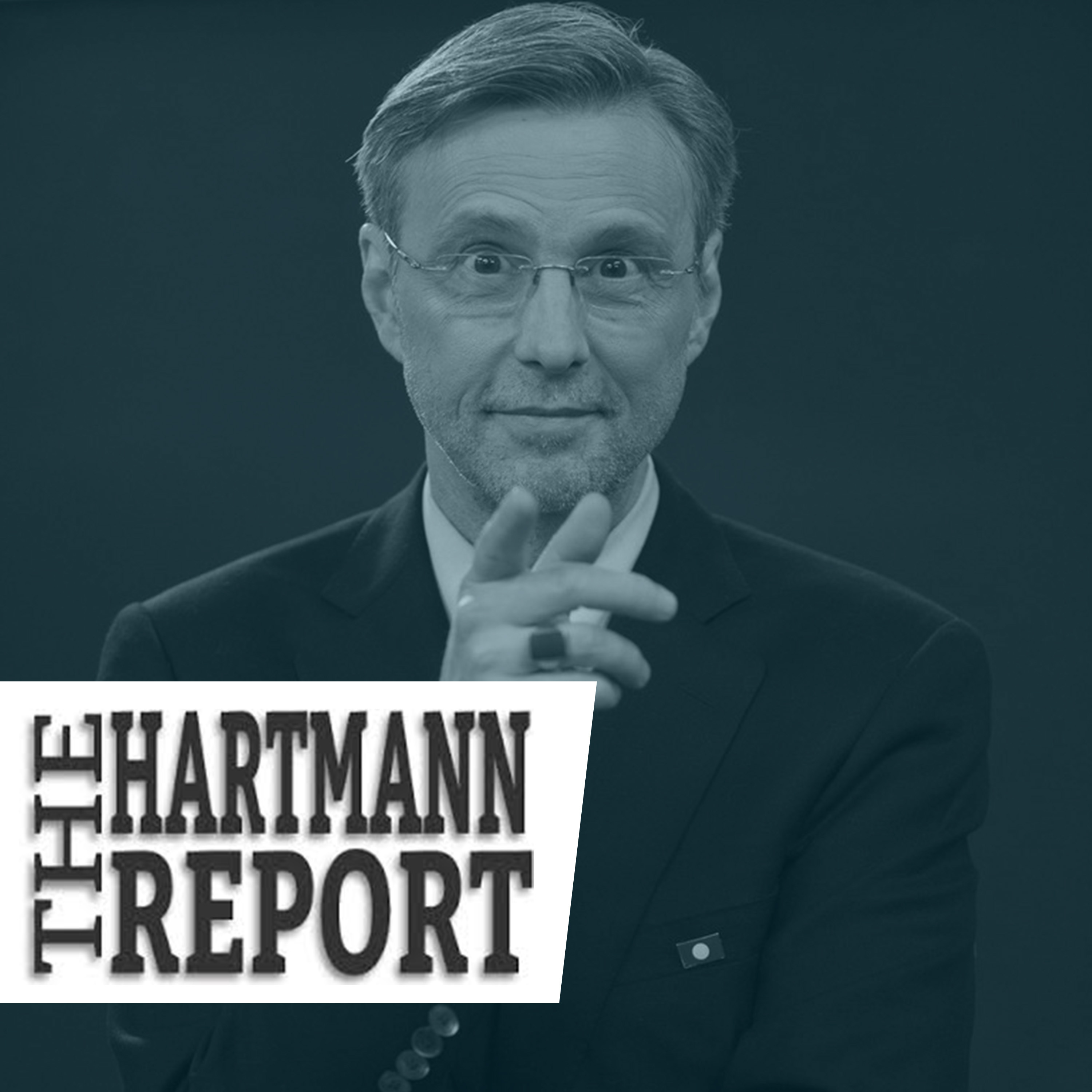
The Hartmann Report
Thom Hartmann
The Glenn Show
Glenn Loury
#RolandMartinUnfiltered
Roland S. Martin
Newt's World
Gingrich 360
Pod Save America
Crooked Media
Ralph Nader Radio Hour
Ralph Nader
Bannon`s War Room
WarRoom.org
Bannon’s War Room
dan fleuette
The Young Turks
TYT Network
The Beat with Ari Melber
Ari Melber, MS NOW
The Damage Report with John Iadarola
TYT Network
The Majority Report with Sam Seder
Sam Seder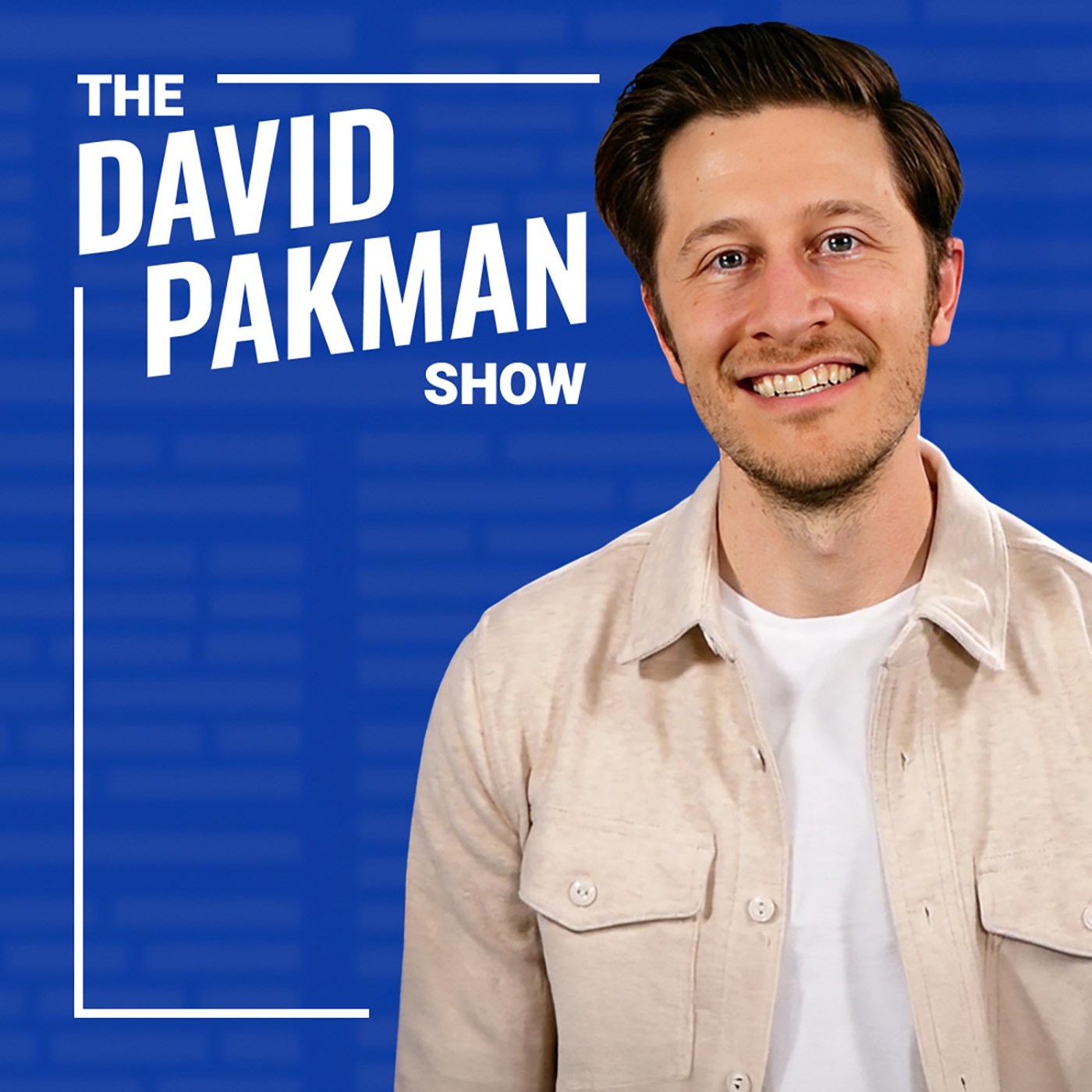
The David Pakman Show
David PakmanGet A Grip with Kendall Reusing
Kendall Reusing
Ultimately with R.C. Sproul
Ligonier Ministries
Grace to You: Radio Podcast
John MacArthur
The Briefing with Albert Mohler
R. Albert Mohler, Jr.
StarTalk Radio
Neil deGrasse Tyson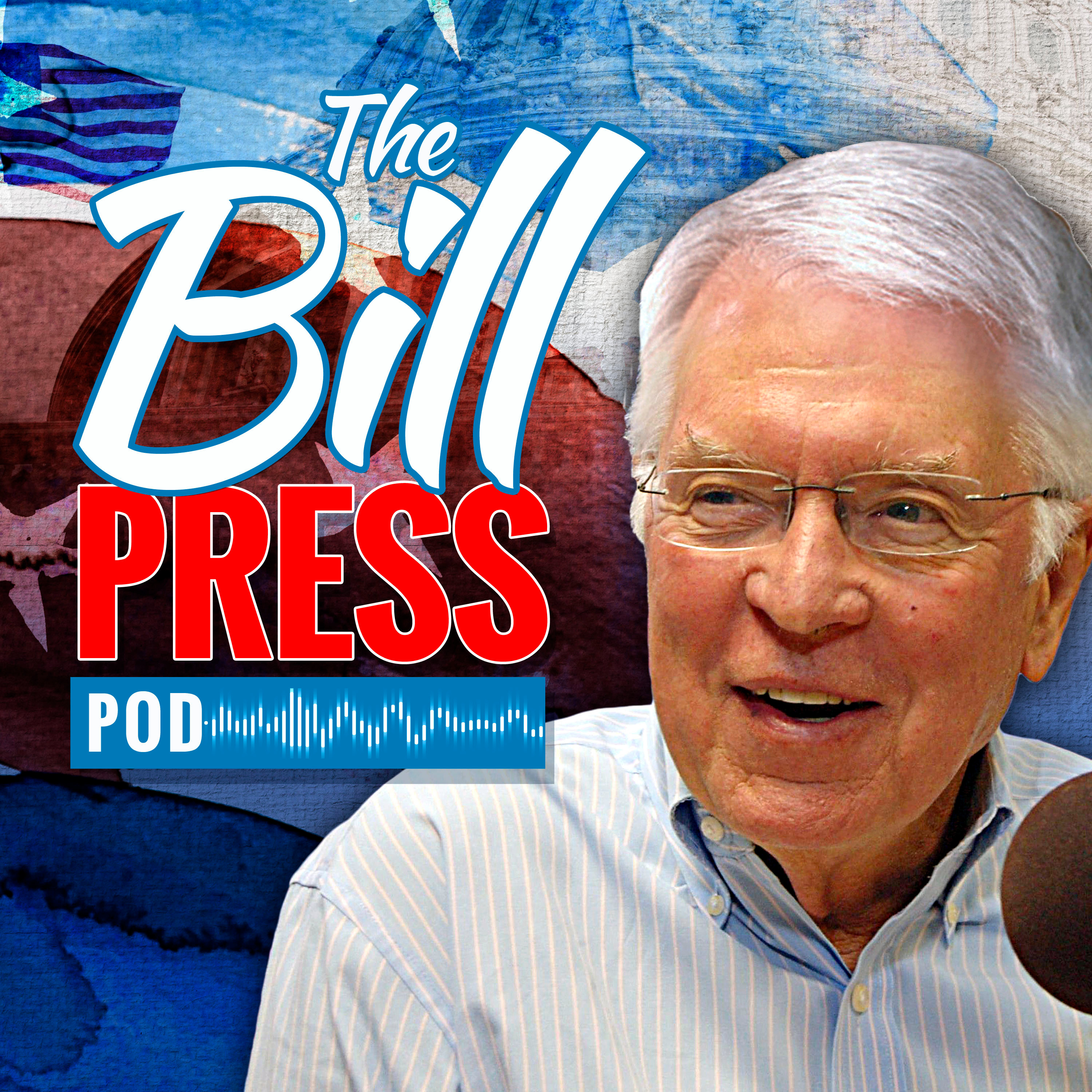
The Bill Press Pod
BP Pods
Ask Pastor John
Desiring God
The Weekly Show with Jon Stewart
Comedy Central
Ask Ligonier
Ligonier Ministries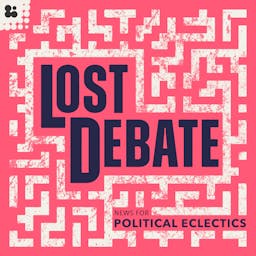
Lost Debate
The Branch
Coffee-Time-Again
Dale Hutchinson
5 Minutes in Church History with Stephen Nichols
Ligonier Ministries
The Ezra Klein Show
New York Times Opinion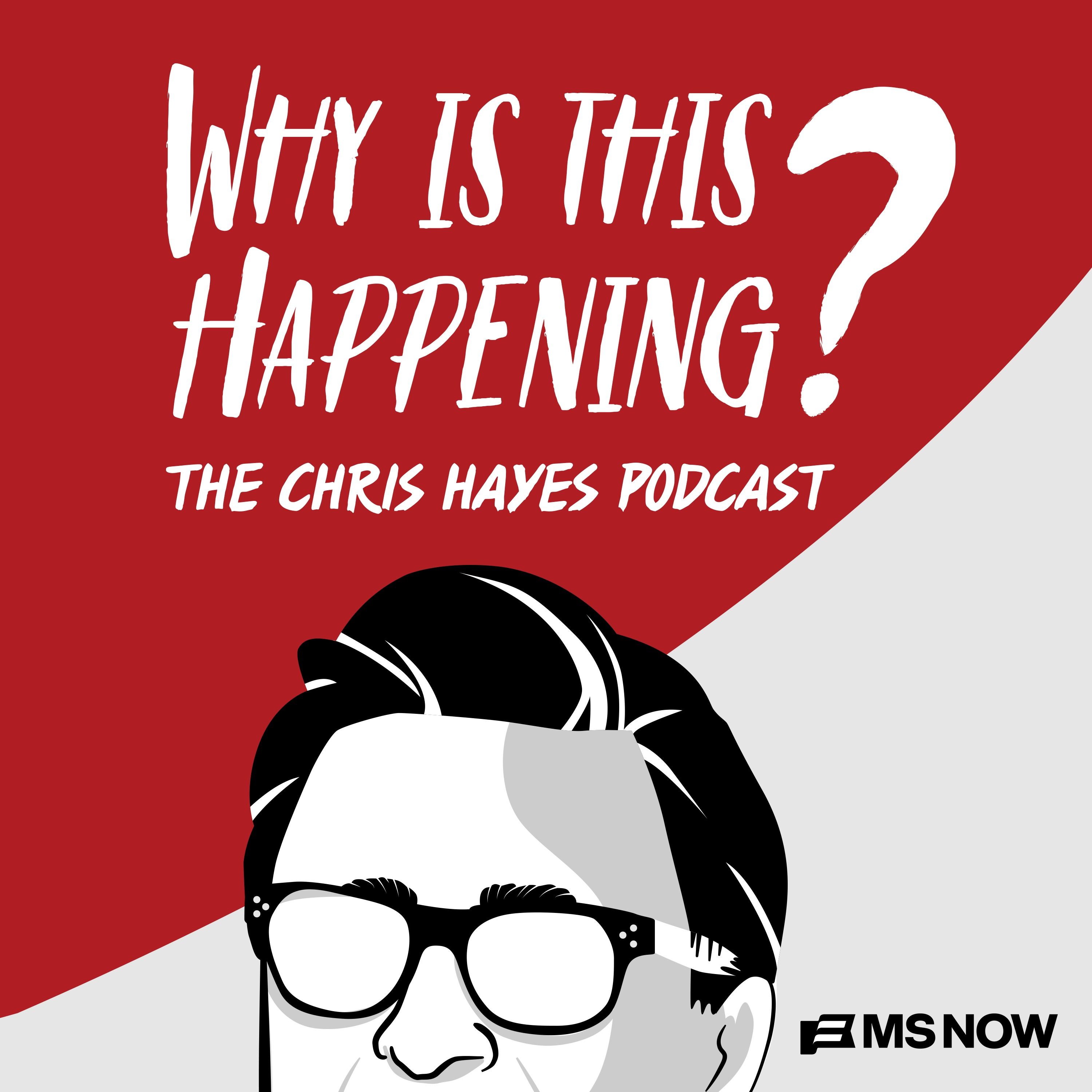
Why Is This Happening? The Chris Hayes Podcast
MS NOW, Chris Hayes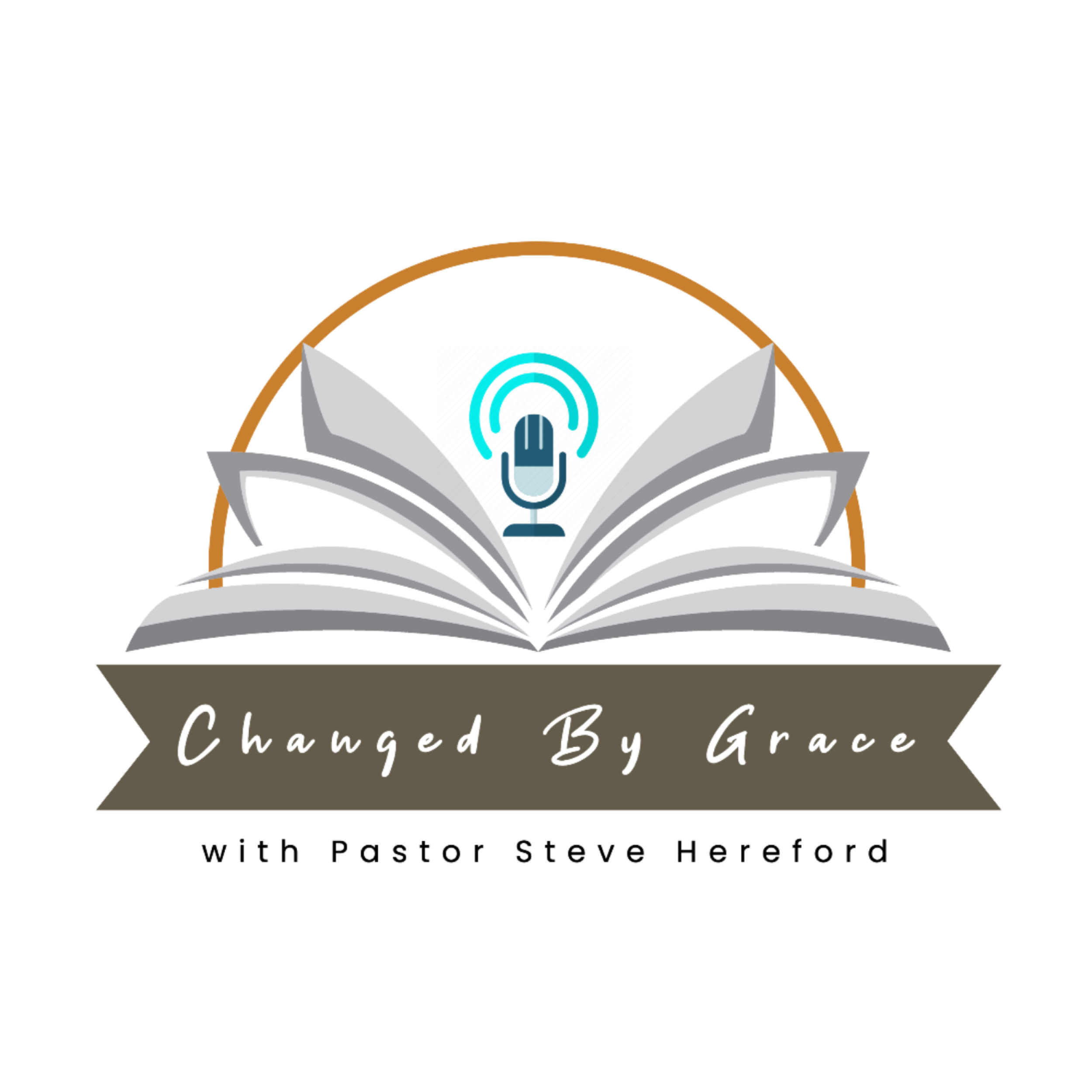
Changed By Grace
PodPoint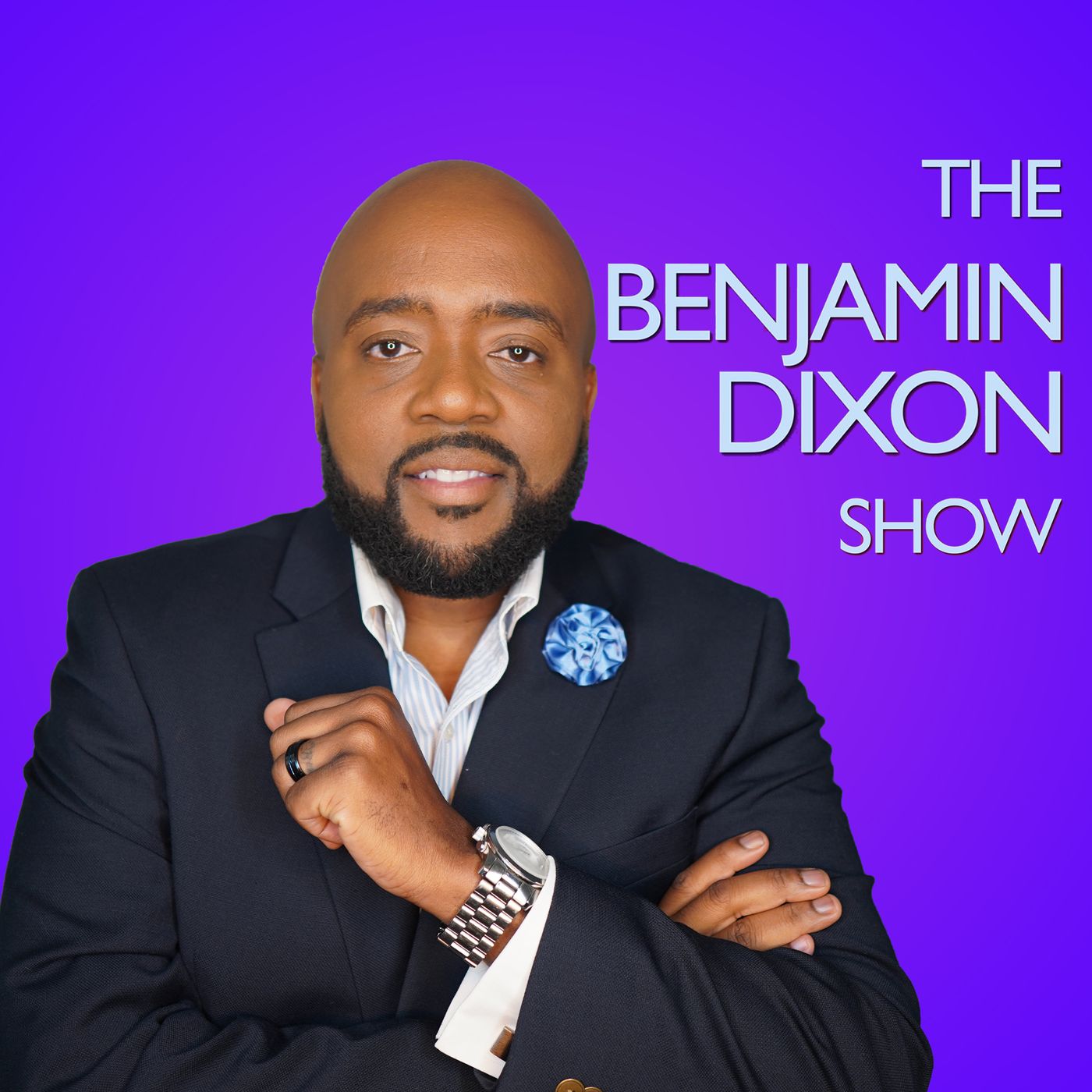
The Benjamin Dixon Show
The Benjamin Dixon Show
Thinking in Public with Albert Mohler
R. Albert Mohler, Jr.
Who Killed JFK?
iHeartPodcastsThe MacArthur Center Podcast
The Master's Seminary
Jean Jacques Machado : No Gi Required
Jay Zeballos
Trauma Bonding
Jamie Kilstein
This Day in History
The HISTORY Channel
The Ben Shapiro Show
The Daily Wire
The Sean Hannity Show
Sean Hannity
Breaking Points with Krystal and Saagar
iHeartPodcasts
The Kyle Kulinski Show
Kyle Kulinski